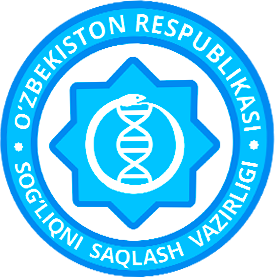USMLE dasturi
The United States Medical Licensing Examination (USMLE) is a three-step examination program for medical licensure in the United States sponsored by the Federation of State Medical Boards (FSMB) and the National Board of Medical Examiners (NBME). Physicians with a Doctor of Medicine (MD) degree are required to pass the USMLE for medical licensure. However, those with a Doctor of Osteopathic Medicine degree (DO) are required to take the COMLEX-USA (COMLEX) exams.
The USMLE assesses a physician's ability to apply knowledge, concepts, and principles, and to determine fundamental patient-centered skills that are important in health and disease and that constitute the basis of safe and effective patient care. Examination committees composed of medical educators and clinicians from across the United States and its territories create the examination materials each year. At least two committees critically appraise each test item or case, revising or discarding any materials that are in doubt. The program intends to provide state medical boards in the United States with a common examination for all licensure applicants. Physicians with an M.D. degree are required to take the USMLE, but those with a D.O. degree take the COMLEX to qualify for state licensure.
USMLE Step 1 assesses whether medical school students or graduates understand and can apply important concepts of the basic sciences to the practice of medicine. Step 1 ensures mastery of not only the sciences that provide a foundation for the safe and competent practice of medicine in the present, but also the scientific principles required for maintenance of competence through lifelong learning. Step 1 is constructed according to an integrated content outline that organizes basic science material along two dimensions: system and process. It includes the following subjects: Anatomy, Behavioral Sciences, Biochemistry, Microbiology, Pathology, Pharmacology, Physiology, and interdisciplinary topics such as nutrition, genetics, and aging.
USMLE Step 2 Clinical Knowledge is a standardized test that assesses a candidate's ability to apply medical knowledge, skills, and understanding of clinical science essential for the provision of patient care under supervision covering topics in various medical disciplines: internal medicine, obstetrics and gynecology, pediatrics, psychiatry and surgery.
Step 3[edit]
USMLE Step 3 is the final exam in the USMLE sequence and assesses whether medical school students or graduates can apply medical knowledge and understanding of biomedical and clinical science essential for the unsupervised practice of medicine, with emphasis on patient management in ambulatory settings. Graduates of US medical schools typically take this exam at the end of the first year of residency. Examinees are tested on the following subjects: central nervous system, eye/ear/nose/mouth/throat, respiratory system, circulatory system, digestive system, behavioral/emotional disorders, musculoskeletal system, skin/subcutaneous tissue, endocrine/nutrition/metabolic disorders, kidneys/urinary tract, reproductive system, pregnancy/childbirth, neonate/childhood illnesses, blood and blood-forming organs, infectious/parasitic diseases, injuries/wounds/toxic effects/burns, and health maintenance issues.


 Русский
Русский English
English.png)









